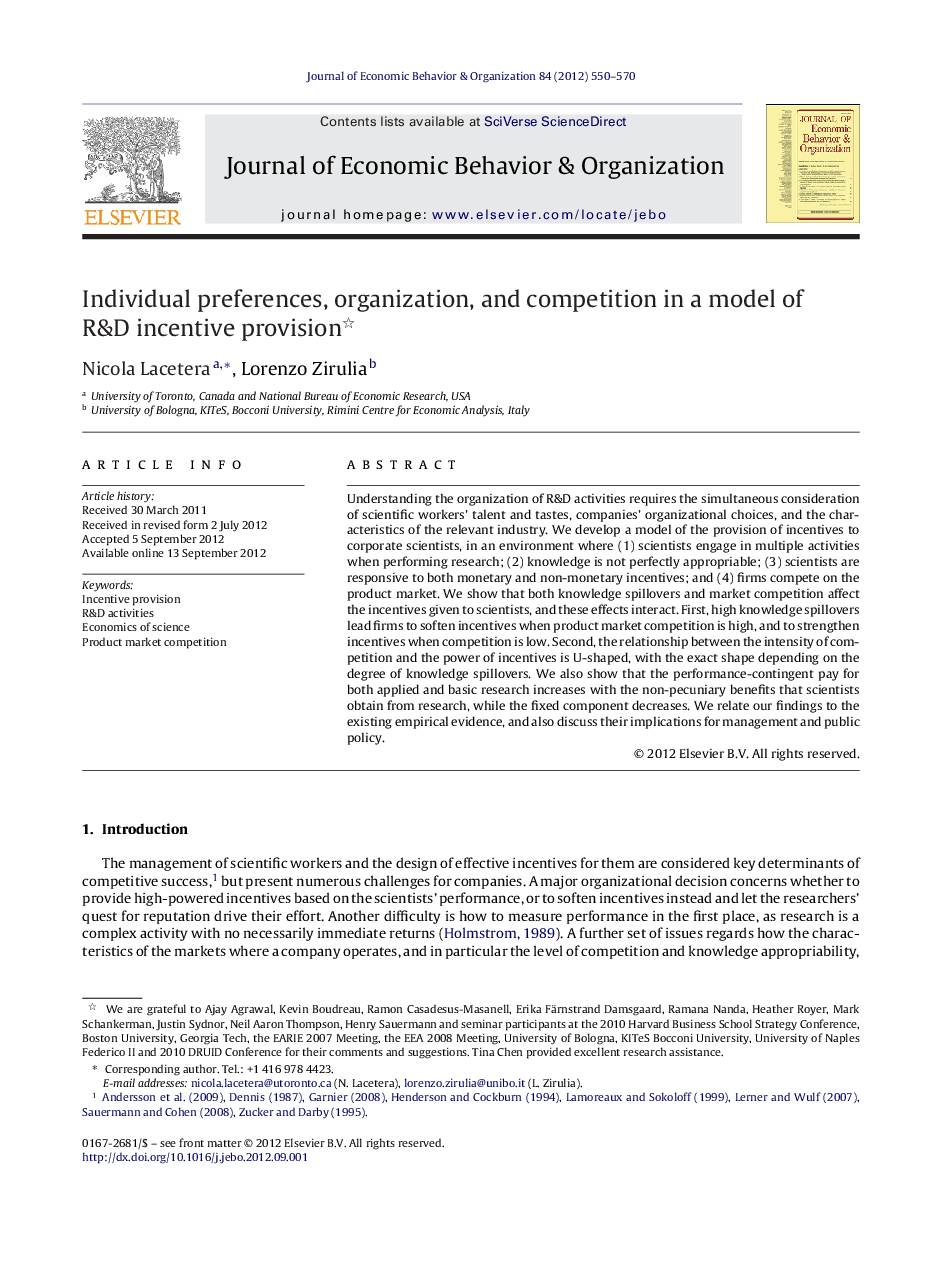| Article ID | Journal | Published Year | Pages | File Type |
|---|---|---|---|---|
| 883726 | Journal of Economic Behavior & Organization | 2012 | 21 Pages |
Understanding the organization of R&D activities requires the simultaneous consideration of scientific workers’ talent and tastes, companies’ organizational choices, and the characteristics of the relevant industry. We develop a model of the provision of incentives to corporate scientists, in an environment where (1) scientists engage in multiple activities when performing research; (2) knowledge is not perfectly appropriable; (3) scientists are responsive to both monetary and non-monetary incentives; and (4) firms compete on the product market. We show that both knowledge spillovers and market competition affect the incentives given to scientists, and these effects interact. First, high knowledge spillovers lead firms to soften incentives when product market competition is high, and to strengthen incentives when competition is low. Second, the relationship between the intensity of competition and the power of incentives is U-shaped, with the exact shape depending on the degree of knowledge spillovers. We also show that the performance-contingent pay for both applied and basic research increases with the non-pecuniary benefits that scientists obtain from research, while the fixed component decreases. We relate our findings to the existing empirical evidence, and also discuss their implications for management and public policy.
► We develop a model of the provision of incentives to corporate scientists. ► The model includes multitasking, knowledge spillovers, competition, and non-monetary motivations. ► The effect of competition on incentive provision interacts with the effect of knowledge spillovers. ► Performance pay for applied and basic research increases with non-pecuniary benefits. ► Empirical, managerial and policy implications are discussed.
